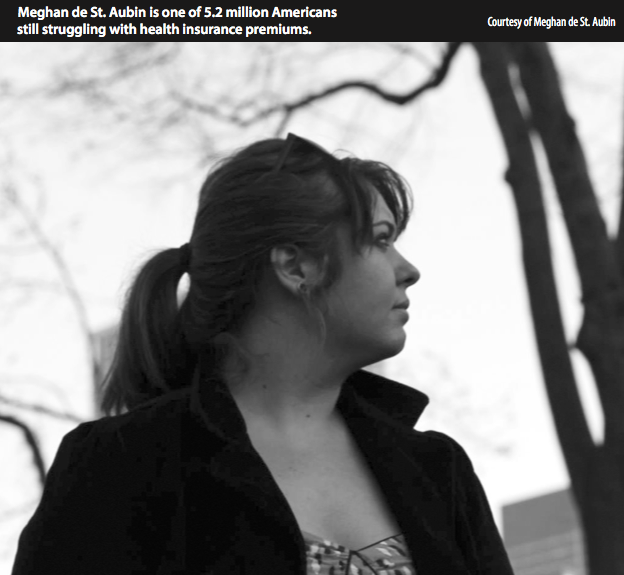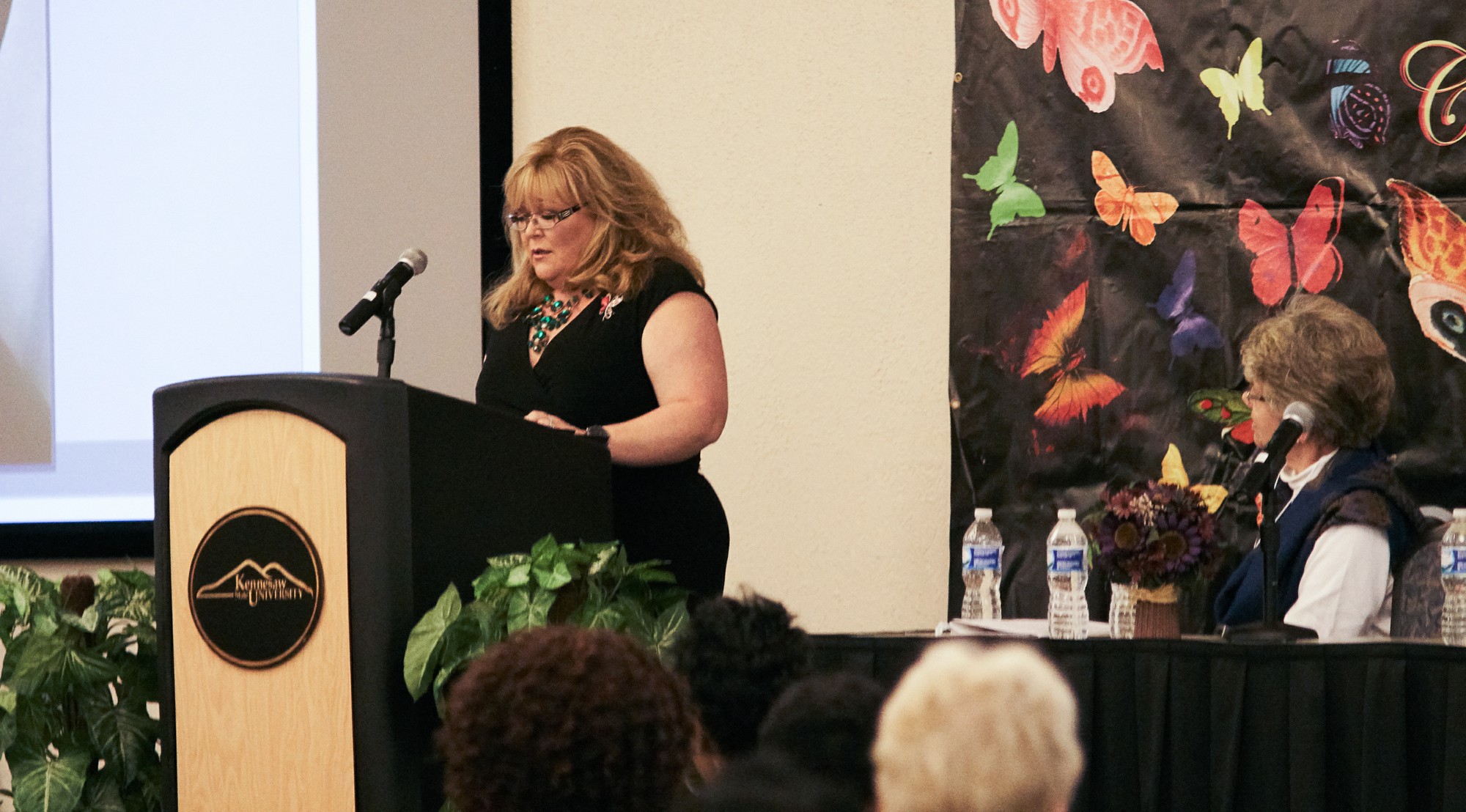
Recent KSU graduate Meghan de St. Aubin was as giddy as anyone about the prospects of the Affordable Care Act, also known as Obamacare, which became law on March 23, 2010. De St. Aubin earned her journalism degree from KSU this past summer. She interned at the Democratic National Convention in 2012 as well as the Atlanta Journal-Constitution and was editor-in-chief of the campus publication Talon Magazine. With a bonafide resume and a shiny new degree, her ambition knew no bounds.
De St. Aubin’s attitude has pivoted since then. Struggling to find a stable job, she picked up an hourly retail gig at a convenience store, making minimum wage. Then, in December, both of her parents, who are in their 60s, were laid off—on the same day.
Under new regulations set by the ACA, young adults can stay on their parents’ insurance plans until they are 26-years old. De St. Aubin had been on her father’s insurance plan, but after being let go he defaulted to benefits through the Veteran’s Association. De St. Aubin’s mother, a pre-school teacher, fell into Medicare after losing her job.
This domino effect of events left De St. Aubin scrambling to find her own health insurance. That’s where she came to an upsetting conclusion. Because of state resistance to federal Medicaid provisions, De St. Aubin discovered that she wasn’t eligible for tax credits or Medicaid coverage, effectively leaving her in what has become known as the “coverage gap.”
According to a report by the Kaiser Family Foundation, 5.2 million Americans fall into the category of uninsured who are too poor to receive government subsidies for insurance plans bought through the marketplace, as well as too healthy—for a lack of a better term—to qualify for Medicaid.
“If you are someone like me, a college graduate, you might as well be locked out of any type of break,” de St. Aubin said. “I do not qualify for Medicaid because I do not have any type of ‘serious’ conditions. I am not disabled. I am not married or have children. Going through the process made me feel like I was lost in the system somehow.”
Originally, the ACA included federal funding for all states to expand Medicaid eligibility to generally impoverished individuals. Traditional state-requirements for Medicaid has been categorical, such as pregnancy, disability, etc. Those qualifications were set to broaden, but in the landmark litigation of the ACA to the Supreme Court in 2012, the judgment was made that states would not be required to change their Medicaid policy.
25 states have opted out of the federal subsidy, and Georgia, according to the report by the KFF, is one of the three states hit worst by this resistance. 409,350 are in the same pickle as de St. Aubin.
“Healthcare is pivotal for me because I have to be able to get inhalers for my asthma.”
De St. Aubin’s boyfriend, who’s 25, will pay a $50 premium per month for his insurance, thanks to making enough money to receive a tax credit. While Obamacare was a homerun for him, she’s a little miffed by the fact she’ll have to pay a $180 month premium. In 2012-13 she made under $10,000, and with student loans piled up, she feels drowned by the results of a freak chain of events.
“Paying a $180 premium is difficult,” she said. “I make a minimal income as a recent college graduate so up until now my parents have helped me when it came to healthcare.”
While de St. Aubin is thankful for the benefits of the ACA as a whole, she was disappointed to see that her situation had not deviated from the reality that would exist without the law in place.
“I tried to be very positive because it sounded like a really great idea,” she said of the earliest workings of Obamacare. “Since going through the actual process of the marketplace—even though I’m thankful it exists— it’s bittersweet to have to pay an expensive premium when I evidently do not qualify for any sort of tax credit.”




This story should have gone into more detail about who is at fault here. Not the ACA, but the state of GA for stupidly turning down the Medicaid expansion which would have helped her.
Agreed, David. Georgia has shown itself to be a regressive state that doesn’t care about the people it leaves behind in its war on social responsibility.
I am another example of someone who would have to pay full price for health insurance if I have an income less than $11,500/yr. If I make $11,501/yr, I would be fully subsidized for health insurance.